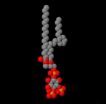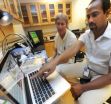(Press-News.org) Recent evidence and new treatments for colonic diverticulitis that may help clinicians manage and treat the disease are summarized in a review in CMAJ (Canadian Medical Association Journal).
Diverticular disease, in which sac-like protrusions form in the wall of the colon, is common in developed countries, although it is increasing throughout the world, likely because of lifestyle changes. In people with the disease, about 25% will develop symptoms, which include abdominal pain and changed bowel habits, often leading to a diagnosis of irritable bowel syndrome. The widespread use of colonoscopy has led to more diagnoses of "uncomplicated" diverticulitis, that is, signs of diverticular inflammation without perforation of the colon, abscess or other complications.
Recent evidence indicates that inflammation after an acute episode is a risk factor for recurrence. Mesalamine may show promise in helping prevent repeat episodes, as recent preliminary studies indicate it is significantly better than placebo in preventing recurrence of diverticulitis. However, these results have been published only in abstract form. Probiotics may also show promise in treating the disease, although high-quality evidence is lacking.
"The pathophysiology of diverticular disease is extremely complicated because of the multifactorial contributing factors, including diet, colonic wall structure, intestinal motility and possible genetic predisposition," writes Dr. Antonio Tursi, Gastroenterology Service, Azienda Sanitaria Locale, Barletta-Andria-Trani, Andria, Italy.
"With recent advances in our understanding of this complex disease, new therapeutic approaches to the management of diverticulitis may further change practice."
### END
Review of new evidence to treat colonic diverticulitis may help doctors
2012-08-27
ELSE PRESS RELEASES FROM THIS DATE:
Vitamin B3 may offer new tool in fight against 'superbugs'
2012-08-27
CORVALLIS, Ore. – A new study suggests that nicotinamide, more commonly known as vitamin B3, may be able to combat some of the antibiotic-resistance staph infections that are increasingly common around the world, have killed thousands and can pose a significant threat to public health.
The research found that high doses of this vitamin increased by 1,000 times the ability of immune cells to kill staph bacteria. The work was done both in laboratory animals and with human blood.
The findings were published today in the Journal of Clinical Investigation by researchers ...
Fitting Kv potassium channels in the PIP2 puzzle
2012-08-27
A recent study in the Journal of General Physiology brings new insights to an area of ion channel regulation: whether voltage-gated potassium (Kv) channels can be regulated by physiological changes to PIP2.
Potassium channels, microscopic pores that allow potassium ions to cross cell membranes, are crucial to such diverse processes as conduction of the nerve impulse, regulation of the heartbeat, and the secretion of hormones such as insulin. PIP2, a minor phospholipid component of cell membranes, regulates the activity of various proteins in the cell membrane, and ...
Leg compressions may enhance stroke recovery
2012-08-27
AUGUSTA, Ga. – Successive, vigorous bouts of leg compressions following a stroke appear to trigger natural protective mechanisms that reduce damage, researchers report.
Compressing then releasing the leg for several five-minute intervals used in conjunction with the clot-buster tPA, essentially doubles efficacy, said Dr. David Hess, a stroke specialist who chairs the Medical College of Georgia Department of Neurology at Georgia Health Sciences University.
"This is potentially a very cheap, usable and safe – other than the temporary discomfort – therapy for stroke," ...
Renal denervation improves blood pressure and arterial stiffness
2012-08-27
Munich, Germany – August 27 2012: Renal denervation improves blood pressure and arterial stiffness in patients with therapy resistant hypertension, according to research presented at ESC Congress 2012 by Mr Klaas Franzen from the University Hospital of Schleswig-Holstein. The findings suggest that renal denervation regenerates blood vessels and could reduce cardiovascular events.
Malignant arterial hypertension was historically treated with surgical thoracolumbar splanchnicectomy, a type of sympathectomy treatment that was introduced in 1938. "A significant reduction ...
Breast milk promotes a different gut flora growth than infant formulas
2012-08-27
DURHAM, N.C. – The benefits of breast milk have long been appreciated, but now scientists at Duke University Medical Center have described a unique property that makes mother's milk better than infant formula in protecting infants from infections and illnesses.
The finding, published in the August issue of the journal Current Nutrition & Food Science, explains how breast milk, but not infant formula, fosters colonies of microbiotic flora in a newborn's intestinal tract that aid nutrient absorption and immune system development.
"This study is the first we know of that ...
Renal denervation achieves significant and sustained blood pressure reduction
2012-08-27
Munich, Germany – August 27 2012: Renal denervation leads to significant and sustained blood pressure reduction for up to 18 months in patients with treatment resistant hypertension, according to research presented at ESC Congress 2012. The new clinical data from the Symplicity HTN-2 randomized clinical trial were presented by principal investigator Dr Murray Esler at the scientific session, associate director of the Baker IDI Heart and Diabetes Institute of Melbourne, Australia and by Prof Böhm for the ESC Press Conference.
Treatment resistant hypertension is blood pressure ...
Renal sympathetic denervation improves physical and mental health in resistant hypertension
2012-08-27
Munich, Germany – August 26 2012: Renal sympathetic denervation improves anxiety, depression, quality of life and stress in patients with resistant hypertension, according to research presented at ESC Congress 2012 by Dr Denise Fischer from Saarland University Hospital.
Arterial hypertension is often associated with several psychological comorbidities, such as anxiety and panic disorders, leading to impaired quality of life. Catheter-based renal sympathetic denervation (RDN) is a novel treatment option for patients with resistant hypertension and has been shown to reduce ...
Renal denervation treats resistant hypertension in real world patient populations
2012-08-27
Munich, Germany – August 27 2012: Renal denervation successfully treats patients with resistant hypertension in real world patient populations, according to a study presented at ESC Congress 2012. The findings were presented by Dr Darren Mylotte from France.
Transcatheter renal denervation represents a novel therapy for treating patients with treatment resistant hypertension, a condition which greatly increases the risk of myocardial infarction and stroke.
"The Symplicity Hypertension I and II studies have suggested that this procedure significantly lowers blood pressure ...
Cancer vaccine Special Focus series published in Human Vaccines & Immunotherapeutics
2012-08-27
August 27, 2012 -- In one of the most comprehensive peer-reviewed discussions on cancer vaccines and immunotherapeutics, a Special Focus in the journal Human Vaccines & Immunotherapeutics provides a critical view on cancer vaccines and a discussion on best approaches for the future. From firsthand accounts of principal investigators involved in numerous failed cancer vaccine programs, including Oncophage® and MVAX®, to commentary from world experts in cancer vaccine development, authors in the Special Focus recount the mistakes of the past and provide an critical lens ...
Renal denervation gives better outcomes than drugs in advanced heart failure
2012-08-27
Munich, Germany – August 27 2012: Renal denervation leads to better outcomes than standard drug treatment in patients with advanced heart failure, according to research presented at ESC Congress 2012. The results of the Olomouc I pilot study were presented by Dr Miloš Táborský from the University Hospital Olomouc.
Renal denervation does not involve any pharmacological treatment. It is a multiple application of radiofrequency energy using a thin catheter via the femoral artery and a long-term "denervation" of the sympathetic nerves around the renal arteries. "This is done ...

